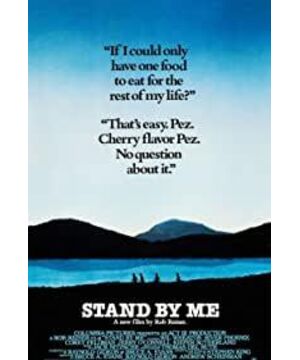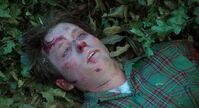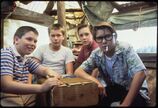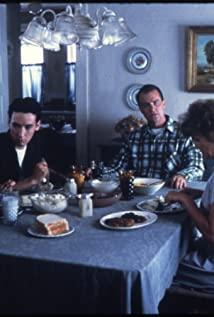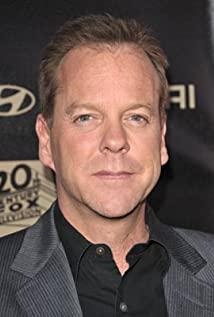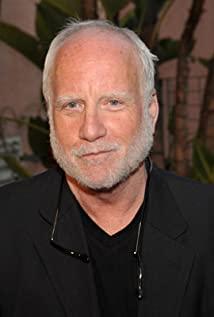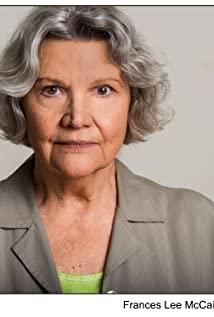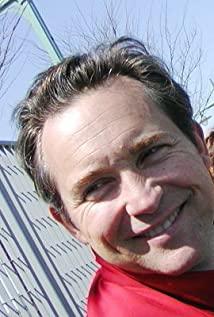Have you ever made an appointment with a couple of friends in the early morning of a certain day and decided to go somewhere with you? It may be for a picnic, it may be for an adventure, or it may be just walking. During the journey, talking and laughing all the way, accidents may happen, but in the end it is still dangerous. You will read this journey for a long time later, or you may forget it-pretend to forget, and then see a small object one day and suddenly remember everything. The past is endless, like threads, and then you realize that everything has passed so long and so long.
The story begins when Vern eavesdropped on his brother's discovery of a corpse. He turned around and told his friends to start a "corpse hunting adventure" together, thinking that he could become famous. Along the way, they encountered various dangers: they were struck to death in a dilemma on the railroad tracks, wolves all around in the middle of the night, and they fell into a forest swamp full of blood-sucking insects. But more often, they discuss everything unscrupulously, arguing about a small matter easily, and making peace in a blink of an eye. At the end of the story, they found the corpse, but gave up taking it back to the town, and chose to report to the police anonymously. On the way back to the town, they were all tacitly noisy—they all had their own thoughts. After they went back, they also parted like this. Later, Gordie followed Chris’s advice and became a writer; Chris became a lawyer and was assassinated and died during a brave act. Teddy went to jail, and then out of everyone’s field of vision, Verm read, worked, married and had children.
This adventure is a transformation for each of them. If no one is walking with them, if there is no chance to venture out, if they have not experienced death in person, maybe they will always be stuck in that small town, and they will not experience the sublimation of their hearts and strive to find their direction in life.
The summer is sunny and the air is dull. The movie has bright colors, but the protagonists each have their own sadness and suffering.
Chris: Everyone thinks that he will be bad because of his family environment, including himself. I once stole the cow's money from the school, and then I wanted to return it, only to find that the money was taken by the teacher to buy a new dress, but people still think it was the money he stole. Just because a habitual offender is easily suspected of stealing, a teacher will not be the same.
Gordie: The only brother in the family who loved him passed away unexpectedly. His parents were immersed in the grief of the past and ignored him. My father looked down on some of Gordie’s friends and even said to him at the funeral, "You should be the one who died."
Teddy: My father participated in the Korean War, but returned to his hometown after the war but became a mental patient and was despised by the people around him.
Vern: His life is probably the most ordinary of several people, but it is also the most mediocre. He follows the normal of life.
The film avoids deliberate sentimentality and tries its best to stop, telling the author's personal sorrow and regret, but it also triggers the audience's remembrance and nostalgia for the past. Seeing the end, I suddenly remembered that I once had so many good friends. They are all from elementary school, but they are only fixed in that period of time and space. Some are classmates and some are children of relatives. I would also go to the bookstore to find some books after school, or go to the square to fly a kite, watch a movie, or have a picnic on the weekend. It may also be that we returned to the countryside during the winter and summer vacations. The few of us children went to some abandoned open spaces to have some fun and play, and we were not afraid of being blamed by their parents when we returned home. Only later, either lost contact and never saw each other again, or only a polite greeting and occasional greetings. As time goes by, if you still know them, it is already known from the spoken words of others, not to mention, many times we have parted ways and do not know each other, and we have completely lost contact with each other. And those who are still around occasionally no longer suggest where to go to play, and do not recall the happiness and shortness of the past. We all understand, but we don't understand anything. The past years now seem to be just like mists.
We all understand that life is always drifting far away, but we don't want to admit that it will hold everything up without leaving behind. Our heart also asks for time to be slower and longer.
View more about Stand by Me reviews


